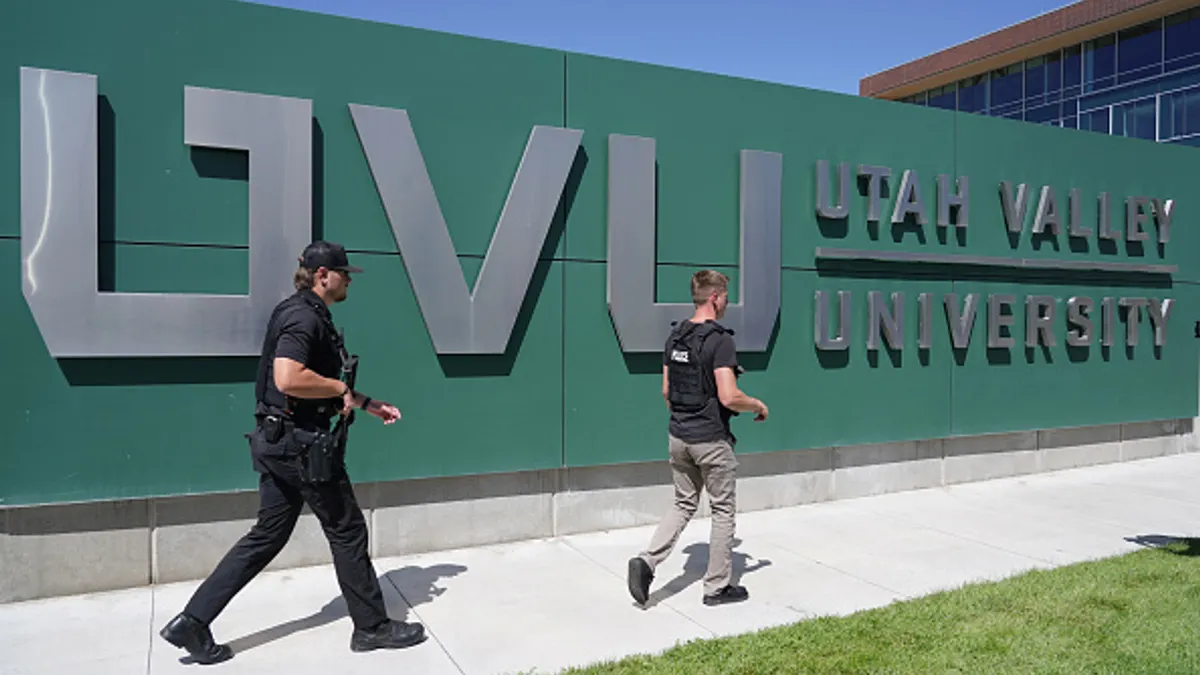In July, former University of Virginia Rector Helen Dragas made headlines when she revealed that the institution had accumulated more than $2.3 billion in funds, saved in what she referred to then as a ‘slush fund’ while the institution was raising tuition prices. Her comments paralleled growing scrutiny from citizens and federal legislators about the investment strategies of elite private institutions, which control about 52% of the total amount of endowed capital among all colleges and universities.
UVA’s Strategic Investment Fund was cleared of any wrongdoing by Virginia state auditors last month, but the coverage of the inquiry brings into a focus a robust trend among many large colleges and universities — funds set aside strictly to support innovation in research and tech startup culture within and around college campuses.
Supporting community development
The University of Connecticut is among the more recent additions to the national university venture capital movement, announcing its partnerships with the state’s public venture capital fund Connecticut Innovations and Webster Bank to launch a $1.5 million fund at the flagship institution.
Officials say that commercial development is the top priority of the partnership, to help all constituents bring more jobs to the region.
Kathy Rocha, Managing Director of UConn’s Entrepreneurship and Innovation Consortium, which helps in managing the fund, says all three groups "see commercialization as a natural to say ‘we want to play a role in advancing these ideas.’ Everyone had the same mindset, and a lot of work went into creating the agreement and coming together with a like mind and working through the process.”
Rocha says students, faculty and alumni are eligible to receive up to $100,000 through varying stages of need for businesses of all sizes. Research, she says, serves as a ‘sweet spot’ for the early months of funding and access to makerspace and business guidance, particularly for students who will help bolster the state’s workforce through business creation.
“The university has a lot of endeavors, as does the state,” Rocha says. “CI is funded by the state, and makes tremendous investment in helping entrepreneurs advance their ideas. It is a major emphasis for the state, and where the state feels there will be significant job growth, we’re working together to match the expected increase in residency.”
At some institutions, funds also go to improve social outcomes for internal and external communities. In May, Marquette University awarded $2 million to 26 projects proposed by faculty and students to improve outcomes in student activities and predictive analytics, to arts and social development for underserved communities in the greater Milwaukee area, and biology research.
“I am so pleased that we were able to fund half of this year’s final proposals,” said Dr. Jeanne Hossenlopp, vice president for research and innovation at Marquette, in a release announcing the grants. “The quality and inventiveness of these projects was truly impressive. And that we continue to see such a breadth of ideas from all disciplines that complement the university’s mission and strategic goals is really encouraging.”
An era of revenue raising
Rick Shangraw is the CEO of Arizona State University’s Enterprise Partners, a nonprofit organization that leads the university’s external revenue-bearing ventures in technology transfer development, real estate holdings, defense research and contracting and international business partnerships.
The umbrella, he says, helps the university to coordinate its efforts with private fundraising and helps to clarify its chief mission of revenue-raising to benefit students.
“The challenge for most universities is that without some kind of structure, these different entities can become affiliated institutions, and that takes on a lot of challenges in working with those organizations. Over time, these [organizations] can form under the function of the foundation, and that causes confusion around the goal of the foundation, so we thought we would do something much like what Google did," Shangraw explains.
Last year, Google announced the formation of a parent company, Alphabet Inc., which would oversee its development concepts beyond search engine and Internet development, such as public health research, self-driving transportation and other initiatives.
For ASU, which counts innovation in higher education among its guiding principles, projects like its Education Technology Accelerator drive the vision for future investment and development projects.
“We’re looking out to companies making next generation advancements in higher education,” Shangraw says. “Student services, adaptive technology, curriculum development — and the researchers can test out these new products on our platforms with more than 92,000 students. It’s one of the ways in which we are trying to reach industries to make education more affordable.”
Shangraws says ASU’s portfolio includes real estate development targets in Washington, D.C. and California, which will likely be leased for mixed use to include some educational outreach. ASU Enterprise Partners also has International relationships in Mexico, Vietnam and Pakistan, and maintains technology transfer development offices in Santa Monica, San Francisco and Los Angeles.
The institution also encourages students to utilize its revenue-raising model; Shangraw cites the 50 students currently working with Enterprise Partners offices and projects, and continued support for the university’s student organization crowdfunding platform.
“At the end of the day, we serve our students, faculty and staff so all of our programs are designed to help them through employment, connecting venture capital firms with student organizations and we provide a service about how to get through the licensing and patenting process.”
“Gone are the days when you get a degree and go out into the world and do what you want,” says Rocha. “Education should lead to meaningful employment. It is expensive, and so students, parents and the state are looking for meaningful employment to be the outcome. All of the innovations we have support those students who are interested in going out and starting something on their own, or being part of a smaller company.”














